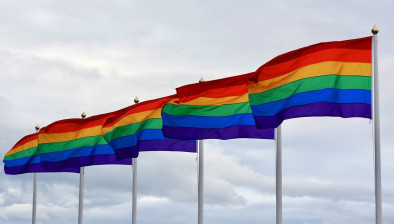Housing organisations urged to take action to better understand needs of LGBTQ+ people

All housing organisations must implement a programme of training to enable a better understanding of the housing needs of LGBTQ+ people, according to a new report published today.
The report - Left Out: Why many LGBTQ+ people aren’t accessing their right to housing in the UK - presents research, evidence and case studies which highlight the disproportionate number of housing issues faced by LGBTQ+ people.
The report, published by World Habitat, highlights the disproportionate rate of homelessness among LGBTQ+ people in the UK.
While one in 20 people in the UK are lesbian, gay or bisexual, one in four young homeless people in urban areas are estimated to be LGBTQ+. Almost half of all gay and bi men have experienced domestic abuse from a family member or partner since the age of 16. Half of older LGBTQ+ people are concerned about revealing their sexuality or gender identity in specialist housing.
Mariangela Veronesi, author of Left Out and head of programme at World Habitat, said: “Far too many LGBTQ+ people do not have the safe homes that they are entitled to. The disproportionate numbers who are homeless or vulnerable to abuse and attacks is shocking and must be addressed immediately.
“We hope this report will guide the housing sector and wider society to better understand a community that has been left out of current narratives and solutions. Once again, we are reminded that we are far from providing the Right to Housing for all, but also that we can and must have a part in helping to achieve this.”
Bob Green, chief executive at Stonewall Housing, added: “I have been incredibly impressed by World Habitat’s approach since we started engaging with them a couple of years ago. I have been encouraged by their eagerness to meet staff, volunteers and service users to understand the specific housing issues of lesbian, gay, bisexual, transgender, queer and questioning people.
“I wholeheartedly welcome this report because it draws attention to the need to understand our communities’ housing needs better and to improve the housing services on offer to people who are desperate for safe housing where they can celebrate their identity and achieve their full potential.”







